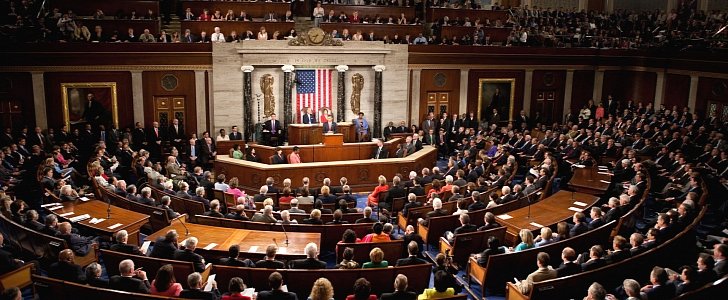President Obama’s proposed Oil Tax of $10 per barrel is becoming a difficult topic in the media.
Republican officials of Congress have promised that the bill will be “dead on arrival.” In layman’s terms, they vowed to refuse it on the first occasion. The engagement comes from Speaker of the House Paul Ryan, a Republican from Wisconsin.
Paul Ryan believes that US consumers will be victims of Obama’s “out of touch climate agenda,” and that the economy is “sacrificed to appease progressive climate activists.”
Instead of such propositions, Mr. Ryan thinks President Obama should focus on a plan to grow US economy. The Republican representative also mentions that he considers Obama’s proposal as an election-year distraction, and his colleagues are committed to “affordable American energy and a strong US economy.”
Julia Slingsby, deputy communications director for Ryan, issued another statement on the issue, in which the President is accused of having hidden motives for proposing the new law. Without specifying anything, the statement implies that the Republicans believe that President Obama wants to “cement his legacy as the most anti-energy President.”
In an interview on CNBC, Joe Petrowski, chairman of Gulf Oil, stated that he believes that the oil business should not have to contribute extra taxes on top of the current ones imposed on them.
Petrowski estimated that the additional taxes would add up to $70 billion, on top of the current $200 billion. Furthermore, the Gulf Oil official stated that this proposition was another way “for Washington to pick winners and losers in the alternative fuel space.”
Barack Obama’s proposed tax on oil was supposed to be paid by oil companies, so it was natural for the executives in this field to be upset about anything that might reduce their profits. However, as some voices noted, there was a risk that this proposition could raise energy bills in the United States of America, as companies would increase prices to even out their profits after the new taxes.
No matter what your opinion on cheap energy is (we like cheap gas like everyone), you must still consider that current fossil fuels are going to end one day, and that alternative solutions are needed. If they are developed in due time, they will phase out fossil fuels before reserves run dry.
Paul Ryan believes that US consumers will be victims of Obama’s “out of touch climate agenda,” and that the economy is “sacrificed to appease progressive climate activists.”
Instead of such propositions, Mr. Ryan thinks President Obama should focus on a plan to grow US economy. The Republican representative also mentions that he considers Obama’s proposal as an election-year distraction, and his colleagues are committed to “affordable American energy and a strong US economy.”
Julia Slingsby, deputy communications director for Ryan, issued another statement on the issue, in which the President is accused of having hidden motives for proposing the new law. Without specifying anything, the statement implies that the Republicans believe that President Obama wants to “cement his legacy as the most anti-energy President.”
In an interview on CNBC, Joe Petrowski, chairman of Gulf Oil, stated that he believes that the oil business should not have to contribute extra taxes on top of the current ones imposed on them.
Petrowski estimated that the additional taxes would add up to $70 billion, on top of the current $200 billion. Furthermore, the Gulf Oil official stated that this proposition was another way “for Washington to pick winners and losers in the alternative fuel space.”
Barack Obama’s proposed tax on oil was supposed to be paid by oil companies, so it was natural for the executives in this field to be upset about anything that might reduce their profits. However, as some voices noted, there was a risk that this proposition could raise energy bills in the United States of America, as companies would increase prices to even out their profits after the new taxes.
No matter what your opinion on cheap energy is (we like cheap gas like everyone), you must still consider that current fossil fuels are going to end one day, and that alternative solutions are needed. If they are developed in due time, they will phase out fossil fuels before reserves run dry.

